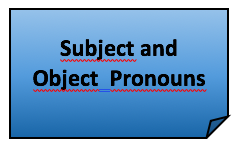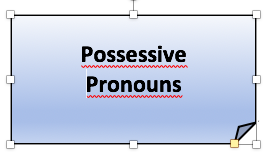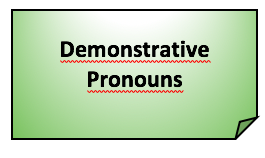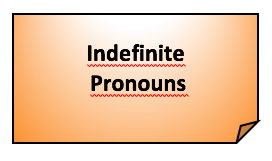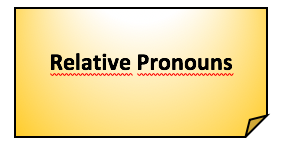PRONOUNS
Pronouns are short words or phrases that replace a noun or noun phrase in a sentence.
They are used to avoid repeating nouns, making our speech or writing less repetitive.
In this section we will look at different categories of pronouns:
- Subject and object pronouns: I/me, he/him, we/us, etc.
- Possessive pronouns: mine, yours, etc.
- Demonstrative pronouns: this, that, these, those
- Indefinite pronouns: anybody, something, nobody, all, both, neither, etc.
- Relative pronouns: who, which, whose etc.

